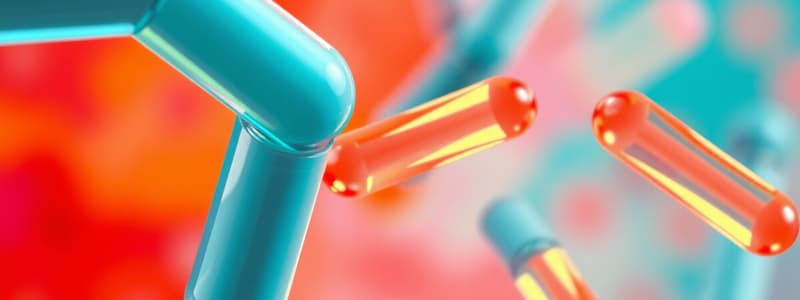Podcast
Questions and Answers
What is the drug class of Cefoxitin?
What is the drug class of Cefoxitin?
- 1st generation cephalosporin
- Antiviral
- Anti-infective (correct)
- 2nd generation cephalosporin (correct)
What are the primary uses of Cefoxitin?
What are the primary uses of Cefoxitin?
Lower respiratory tract infections, skin/bone/joint infections, UTI, septicemia
What is the mechanism of action of Cefoxitin?
What is the mechanism of action of Cefoxitin?
Bacteriocidal, increase activity against other gram-negative bacteria
Common side effects of Cefoxitin include ______.
Common side effects of Cefoxitin include ______.
What are some nursing interventions for Cefoxitin?
What are some nursing interventions for Cefoxitin?
What should patients be educated about regarding Cefoxitin?
What should patients be educated about regarding Cefoxitin?
Flashcards are hidden until you start studying
Study Notes
Drug Class
- Cefoxitin is classified as a 2nd generation cephalosporin, belonging to the anti-infective group.
Uses
- Indicated for lower respiratory tract infections.
- Effective in treating skin, bone, and joint infections.
- Utilized for urinary tract infections (UTIs) and septicemia.
Mechanism of Action
- Functions as a bactericidal agent, targeting and killing bacteria.
- Exhibits increased activity against gram-negative bacteria compared to earlier cephalosporin generations.
Side Effects
- Possible neurological effects including seizures.
- Gastrointestinal symptoms may arise, such as nausea, vomiting, and diarrhea (N/V/D).
- Skin reactions can include rash, and there is a risk of anaphylaxis.
- Potential for localized pain at the injection site.
Nursing Interventions
- Monitor patients for signs of infection to assess treatment effectiveness.
- Conduct culture and sensitivity tests to ensure appropriate antibiotic use.
- Monitor for symptoms indicating anaphylaxis, such as swelling or difficulty breathing.
- Assess bowel function regularly to identify any gastrointestinal complications.
- Keep track of renal function, indicated by increased blood urea nitrogen (BUN) and creatinine levels.
Patient Education
- Educate patients to inform healthcare providers of any fever, diarrhea, or gastrointestinal symptoms such as mucus, pus, or blood in their stool.
Studying That Suits You
Use AI to generate personalized quizzes and flashcards to suit your learning preferences.
